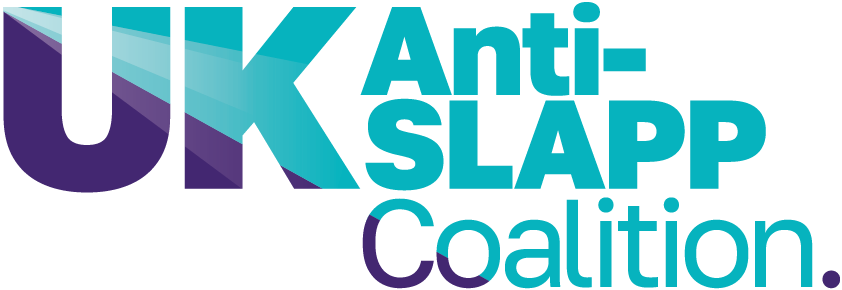Eliot Higgins
Eliot Higgins, founder of Bellingcat, an open source news agency
STATUS: Concluded – Filed in December 2021, the case was thrown out of court in May 2022. Ongoing questions remain around the granting of licences by the UK Government to allow Yevgeny Prigozhin to pursue the legal case in the UK, despite being under sanctions since 2020.
In December 2021, Eliot Higgins had a libel case filed against him in London by Yevgeny Prigozhin, a Russian oligarch often referred to as ‘Putin’s Chef’. The claims related to five tweets, published in August 2020, in which the Bellingcat founder had linked to the investigations published by Bellingcat, CNN and Der Spiegel that reported on Prigozhin’s connections with the Wagner Group. None of the media outlets were sued. Prigozhin had been sanctioned by the UK Government in October 2020 for significant foreign mercenary activity in Libya and multiple breaches of the UN arms embargo, which has been linked to the Wagner Group, a private military company. At the time, Prigozhin denied any association with the Wagner Group, which was also sanctioned in March 2022.
At an early hearing, on 23rd March 2022, Edward Miller from Discreet Law LLP successfully applied to withdraw the law firm from representing Prigozhin and asked for said withdrawal to be discussed in private with the judge as it regarded confidential information.[3] The first substantive hearing in the case was scheduled for 13th April 2022 but was postponed due to a last minute request from Prigozhin due to his lack of legal representation. On 18th May 2022, Justice Nicklin struck out the claim from the High Court as Prigozhin repeatedly failed to comply with court orders. According to a press release by Higgins’ lawyers McCue Jury and Partners: “This followed [Prigozhin’s] legal representatives, Discreet Law, withdrawing due—according to Prigozhin—the increased negative attention representing Prigozhin would attract following Russia’s invasion of Ukraine”.
In order for a person under sanctions to be able to pay for legal services in the UK, they would have needed a licence from the Office of Financial Sanctions Implementation (OFSI) in HM Treasury. It was initially thought that this licence was given as Prigozhin succeeded in serving Higgins with the lawsuit in London’s High Court, however how this process had happened was unclear until January 2023. However, Higgins’ lawyers also noted in their May 2022 press release: “Discreet Law did not see through the request to HM Treasury for a licence for payment on account of costs that would have enabled Higgins to enforce any costs order issued by the Court against Prigozhin.” This means that Higgins’ was left out of pocket for this failed case against him.
Higgins’ lawyers statement also confirmed that they had made a complaint to the SRA and acknowledged that “Free Speech NGOs, such as FPC and Index on Censorship, recognise Prigozhin’s case against Mr Higgins as a Strategic Litigation Against Public Participation (SLAPP).” In September 2022, Higgins posted a twitter thread in which he pointed out that Prigozhin has now admitted his involvement with Wagner and cited it as “a perfect example of how crooks like Prigozhin get to game the UK legal system to attack genuine investigative work”.
In January 2023, the case came to prominence again when openDemocracy published an article titled ‘Revealed: UK government helped sanctioned Putin ally sue British journalist’, in which it was revealed that OFSI had granted licences for Discreet Law to work on behalf of Prigozhin, and moreover agreed for lawyers to travel to St Petersburg to meet with Prigozhin to discuss the case.
FPC’s Director Susan Coughtrie was quoted in the article, stating that the decision-making process for granting licences needed “much closer scrutiny”.
“This could not be more pertinent now, with many more individuals sanctioned in light of the Russian invasion of Ukraine,” … “We need assurances from the UK government, which has already committed to addressing SLAPPs, that sanctioned individuals will not be given licence to abuse the UK courts to bully journalists and suppress information in the public interest.”
In a subsequent House of Lords Digital and Communications Select Committee session on the 24th January, FPC’s Director raised Higgins’ case and the concerns around the granting of licences by OFSI to sanctioned individuals to pursue SLAPP cases in the UK. The session can be watched here.
This development in Higgins’ case subsequently provoked considerably outcry in Parliament where it was raised by several MPs and Peers, with David Lammy MP filing an urgent question in the House of Commons asking the Secretary of State for the Foreign Secretary of State for Foreign, Commonwealth and Development Affairs to make a statement regarding the UK’s involvement in assisting Prigozhin.[10] In response, the Exchequer Secretary to the Treasury, James Cartlidge, stated that the government was committed to SLAPPs reform and regarding sanctioned individuals he added: “we will undertake an internal review to see how such cases are considered in the future.”
